Transform your future with expert-led IT training — our team of industry professionals delivers unparalleled guidance and skills development for the digital age.




Technoglobe UAE is a collaborative initiative between Technoglobe India and Advanc Technologies LLC, created to provide industry-relevant, skill-based training in the UAE.
Technoglobe India, with 20+ years of experience, is a trusted name in IT and professional education. To bring this legacy to the UAE, it partnered with Advanc Technologies LLC — now the Master Franchisee of Technoglobe UAE.
This partnership is built on mutual trust, complementary strengths, and a shared goal: empowering individuals with practical, job-ready skills. While Technoglobe brings academic depth and certified programs, Advanc Technologies leads local operations and outreach.
Leadership includes Sajjad Aziz and Afshan Aziz (Directors of Advanc Technologies LLC), working closely with Mr. Shiraz Khan, Ms. Cherry, and Mrs. Afsha Khan — the founding team of Technoglobe India.
Together, we aim to build more than just a training center — a platform for career transformation, accessible to learners at every stage of life.
Recently, Technoglobe UAE launched its second center in Al Nahda 2, Dubai — a new milestone that extends our reach beyond Sharjah, offering the same commitment to skill-building and mentorship across Dubai.

We empower businesses of all sizes to thrive in rapidly changing markets with proven strategies.
We provide diverse learning programs tailored to business and career growth across industries.
Collaborations with 300+ companies ensure strong career opportunities for our learners.
Empowering professionals with the business acumen to lead.
Inspire, explore, and grow — where kids and teens shine bright!
Unlock global opportunities with expert language training.

Web applications are at the core of almost every business and digital platform today. From e-commerce stores and booking systems to SaaS platforms and online communities — web apps are everywhere.

Starting your programming journey can feel overwhelming — there’s a sea of languages, tools, and tutorials out there. But don’t worry, every expert developer was once a beginner. With the right content roadmap, you can learn to code with confidence and purpose.


Teach Thousand of Students and Earned Money!
